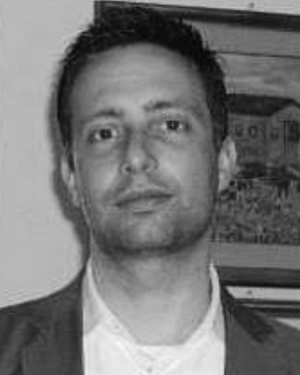Track 1 Afternoon
Optical Wireless Communication Systems for Biomedical Implants: Basics and Advances of Biotelemetry
Abstract
The Tutorial introduces to the design of wireless communication systems for biomedical implants by making a detailed focus on the basics and advances of the optical biotelemetry. In particular, the design of new architectures of biomedical systems is demanding to fulfill the need to acquire and process biological/neural signals providing high-quality healthcare to sick persons. Therefore, the following key-points are required: design of novel biomedical apparatus for prosthetic devices, diagnostic and therapeutic instrumentations, neural systems, etc., as well as guarantee the capability to transmit-receive data from inside and outside of the human body by means of high-efficiency implantable wireless data link solutions. Therefore, it is needed to develop implantable (transcutaneous) wireless biotelemetry systems achieving high data rate transmission, high efficiency characteristics (low-voltage/low-power), small Si area and low Bit Error Ratio.
Speakers
Prof. Andrea De Marcellis
University of L’Aquila
Andrea De Marcellis received the Laurea degree in Electronic Engineering and the Ph.D. degree in Microelectronics from University of L‘Aquila, Italy, in 2005 and 2009, respectively. He is currently an Associate Professor of Electronics at the University of L‘Aquila (ITALY), Department of Information Engineering, Computer Science and Mathematics (DISIM), head of Electronic and Photonic Integrated Circuits and Systems Laboratory (EPICS Lab). His main research activities concern the design of mixed-signal electronic and optoelectronic integrated circuits and systems for signal conditioning, data processing, optical sensing, and communication links (data and power) for biomedical applications. He has co-authored a book and two book-chapters and more than 170 scientific publications in international journals and conference proceedings. He is Chair of the Technical Committee “Optoelectronic sensing systems” of the IEEE Italy Sensors Chapter, is a member of the Editorial Board of Universal Journal of Electrical and Electronic Engineering and of Electronics, and Associate Editor of IEEE ACCESS Journal.
Dr. Guido Di Patrizio Stanchieri
University of L’Aquila
Guido Di Patrizio Stanchieri received the Master's degree (cum laude) and the Ph.D. degree in Electronic Engineering from the University of L'Aquila, L'Aquila, Italy, in 2017 and 2021, respectively. He is currently an Assistant Professor of Electronics at the University of L‘Aquila (ITALY), Department of Information Engineering, Computer Science and Mathematics (DISIM). His main research activities concern the design of digital electronic, integrated circuits and systems for data processing and communication links (data and power) for biomedical applications. He has co-authored of one book-chapters and 37 scientific publications in international journals and conference proceedings.

